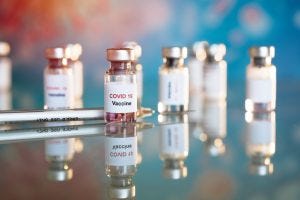Content Spotlight
Podcast: MilliporeSigma says education vital to creating unbreakable chain for sustainability
MilliporeSigma discusses the importance of people, education, and the benefits of embracing discomfort to bolster sustainability efforts.
October 29, 2020

The two partners will collaborate to develop an RNA vaccine against COVID-19, as well as vaccines for three additional indications.
Amyris will license the Infectious Disease Research Institute (IDRI)’s novel ribonucleic acid (RNA) vaccine platform.
Alongside the vaccine platform, Amyris will gain access to IDRI’s nanostructured lipid carrier (NLC) platform, which will be combined with its own semi-synthetic squalene technology to develop RNA vaccines against various infectious disease targets, potentially including influenza and certain cancer treatments.

Image: iStock/kiattisakch
The first project will target COVID-19, with both partners sharing the intellectual property rights to any created vaccine.
The plan is to create a COVID-19 vaccine as part of the ‘second generation’ of vaccines. The Phase I clinical trial is scheduled to start in mid-2021 and conclude in the first half of 2022.
The interest in RNA vaccines has grown alongside the COVID-19 pandemic, particularly when Moderna raced into an early lead in developing its mRNA vaccine.
According to Amyris, IDRI’s RNA vaccine platform would offer ‘differentiated advantages’ over other RNA vaccines.
Chris Paddon, lead scientist at Amyris, explained to Bioprocess Insider that “the IDRI RNA vaccine requires less RNA, which results in improved scalability and decreased production cost. Additionally, the stockpiles do not need to be frozen for transport, instead they can be transported at refrigerator temperatures.”
The role of Amyris is to provide its semi-synthetic squalene to the partnership, which will ensure ‘future scalability’ and ‘sustainability’, Paddon said.
Regarding the improved scalability, in a recent interview, CEO of Amyris, John Melo, noted that the company could ready enough squalene for a billion doses of vaccine ‘in about a month’. He also outlined that the cost of semi-synthetic squalene is a third of natural squalene.
Outside of its partnership with IDRI, Paddon confirmed that the company has sent samples of its synthetic squalene to vaccine manufacturers working on COVID-19 and influenza vaccines to gauge interest.
In terms of sustainability, Paddon outlined that the reason its semi-synthetic squalene can be considered sustainable is because it is manufactured from sugarcane, as opposed to the natural squalene derived predominantly from sharks.
The process of extraction involves catching and killing sharks, though the primary motivation is often for the meat rather than just squalene itself.
Natural squalene is used by companies in some vaccines and adjuvants, where it is used to enhance the immune response, which is of particular interest now with the number of vaccines in the pipeline.
However, Shark Allies, a non-profit organization set up to protect sharks, estimated that a vaccine utilizing squalene to protect the global population would lead to nearly 500,000 sharks being needed to manufacture at a global scale.
It should be noted that not all vaccines in development against COVID-19 use squalene and if any that did were approved, it is unlikely that such a vaccine would be produced in such numbers.
You May Also Like